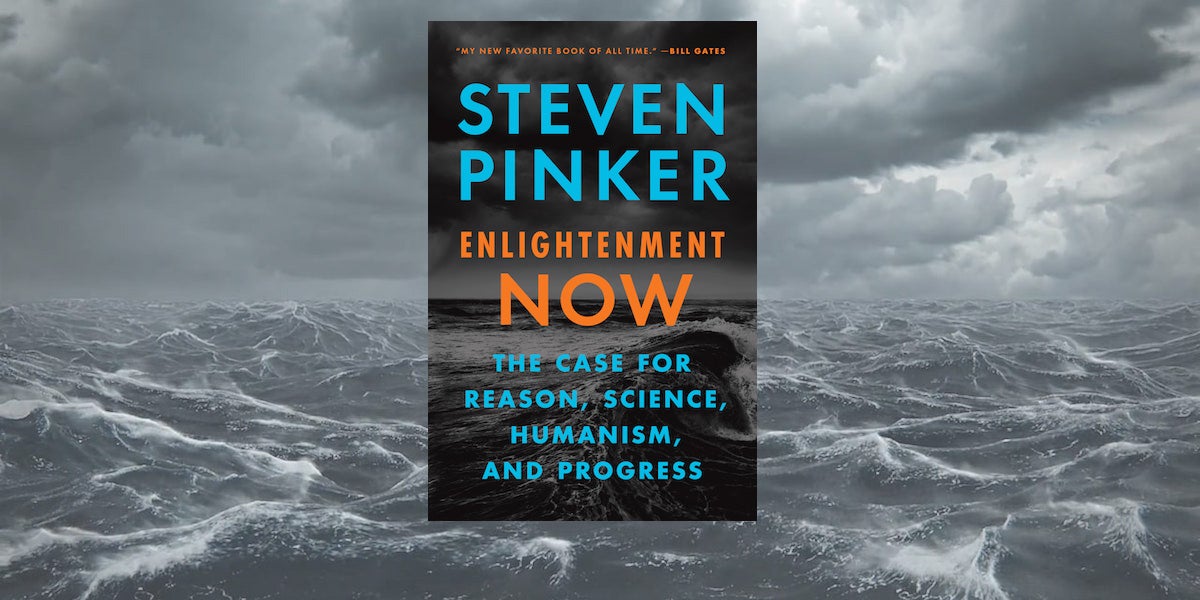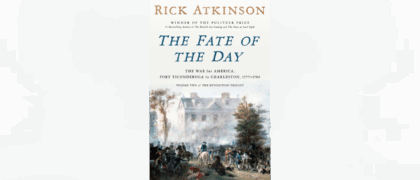In a recent TED Talk, author and professor of cognitive science Steven Pinker talked politics, pollution, and progress—the subject of his latest book, Enlightenment Now.
Partial transcript below:
Before the 17th century, no more than 15 percent of Europeans could read or write. Europe and the United States achieved universal literacy by the middle of the 20th century, and the rest of the world is catching up. Today, more than 90 percent of the world’s population under the age of 25 can read and write. In the 19th century, Westerners worked more than 60 hours per week. Today, they work fewer than 40. Thanks to the universal penetration of running water and electricity in the developed world and the widespread adoption of washing machines, vacuum cleaners, refrigerators, dishwashers, stoves and microwaves, the amount of our lives that we forfeit to housework has fallen from 60 hours a week to fewer than 15 hours a week.
Do all of these gains in health, wealth, safety, knowledge and leisure make us any happier? The answer is yes. In 86 percent of the world’s countries, happiness has increased in recent decades.
Well, I hope to have convinced you that progress is not a matter of faith or optimism, but is a fact of human history, indeed the greatest fact in human history. And how has this fact been covered in the news?
A tabulation of positive and negative emotion words in news stories has shown that during the decades in which humanity has gotten healthier, wealthier, wiser, safer and happier, the “New York Times” has become increasingly morose and the world’s broadcasts too have gotten steadily glummer.
Why don’t people appreciate progress? Part of the answer comes from our cognitive psychology. We estimate risk using a mental shortcut called the “availability heuristic.” The easier it is to recall something from memory, the more probable we judge it to be. The other part of the answer comes from the nature of journalism, captured in this satirical headline from “The Onion,” “CNN Holds Morning Meeting to Decide What Viewers Should Panic About For Rest of Day.”
News is about stuff that happens, not stuff that doesn’t happen. You never see a journalist who says, “I’m reporting live from a country that has been at peace for 40 years,” or a city that has not been attacked by terrorists. Also, bad things can happen quickly, but good things aren’t built in a day. The papers could have run the headline, “137,000 people escaped from extreme poverty yesterday” every day for the last 25 years. That’s one and a quarter billion people leaving poverty behind, but you never read about it. Also, the news capitalizes on our morbid interest in what can go wrong, captured in the programming policy, “If it bleeds, it leads.” Well, if you combine our cognitive biases with the nature of news, you can see why the world has been coming to an end for a very long time indeed.
Let me address some questions about progress that no doubt have occurred to many of you. First, isn’t it good to be pessimistic to safeguard against complacency, to rake the muck, to speak truth to power? Well, not exactly. It’s good to be accurate. Of course we should be aware of suffering and danger wherever they occur, but we should also be aware of how they can be reduced, because there are dangers to indiscriminate pessimism. One of them is fatalism. If all our efforts at improving the world have been in vain, why throw good money after bad? The poor will always be with you. And since the world will end soon — if climate change doesn’t kill us all, then runaway artificial intelligence will — a natural response is to enjoy life while we can, eat, drink and be merry, for tomorrow we die.
The other danger of thoughtless pessimism is radicalism. If our institutions are all failing and beyond hope for reform, a natural response is to seek to smash the machine, drain the swamp, burn the empire to the ground, on the hope that whatever rises out of the ashes is bound to be better than what we have now.
Well, if there is such a thing as progress, what causes it? Progress is not some mystical force or dialectic lifting us ever higher. It’s not a mysterious arc of history bending toward justice. It’s the result of human efforts governed by an idea, an idea that we associate with the 18th century Enlightenment, namely that if we apply reason and science that enhance human well-being, we can gradually succeed. Is progress inevitable? Of course not. Progress does not mean that everything becomes better for everyone everywhere all the time. That would be a miracle, and progress is not a miracle but problem-solving. Problems are inevitable and solutions create new problems which have to be solved in their turn. The unsolved problems facing the world today are gargantuan, including the risks of climate change and nuclear war, but we must see them as problems to be solved, not apocalypses in waiting, and aggressively pursue solutions like Deep Decarbonization for climate change and Global Zero for nuclear war.
Read the full transcript here.





